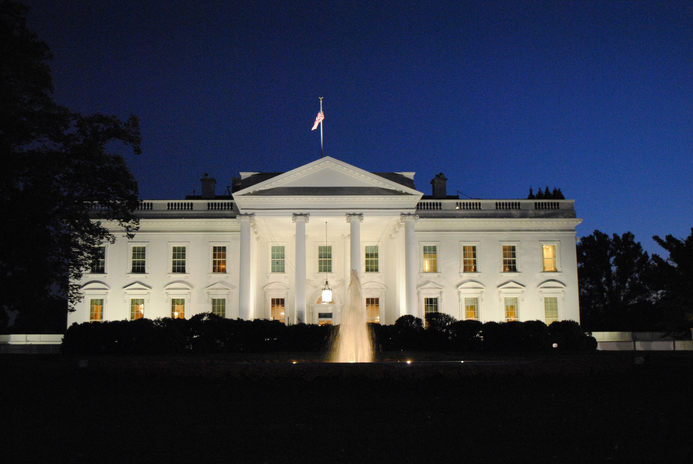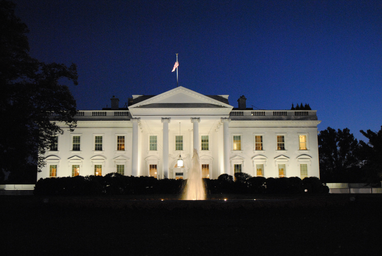Is it possible to craft an American Civil War film that is entirely absent of politics? Director Alex Garland apparently thinks so, but whether his newest A24 film, Civil War, truly works in its premise is heavily up for debate.
Civil War stars Kirsten Dunst as jaded yet renowned war photographer Lee Smith, working in the midst of a hellish, war-ridden American landscape. She and a group of other journalists decide to journey from Brooklyn, New York, to Washington, D.C., to photograph and interview the president (portrayed by Nick Offerman) in his “illegal” third term. But the trek to D.C. is a treacherous one, with fuel scarce, militiamen battles around every corner and refugee camps difficult to find. Lee and the other journalists immerse themselves in every conflict they encounter, taking photos and desperately seeking the “perfect shot.” There’s a lot to enjoy about Civil War. The acting is superb. Dunst shines as always, but the true star for me was Cailee Spaeny. Fresh off her Volpi Cup-winning performance as the titular character in Sofia Coppola’s Priscilla, Spaeny plays Jessie, a young photographer who looks up to Dunst and tags along on their trip to D.C. Between Civil War and Priscilla, Spaeny has cemented herself as a rising star. She masterfully balances her excitement about joining Lee and the others with the terror and shock each situation inflicts upon her. It’s a well-rounded and outstanding performance. The directing is also outstanding, with action shots interrupted sporadically by the photos Lee and Jessie take (the former’s in color, the latter’s monochrome). Garland is skilled at building tension and anxiety throughout every scene.
Midway through the film, the group encounters a militia steadily constructing a mass grave for executed civilians. Jesse Plemons (husband of Kirsten Dunst, which provides an even more fascinating dynamic seeing them together on screen) plays the group’s ringleader whom Lee and her partner, Joel (played by Wagner Moura), desperately try to reason with. Plemons is terrifyingly stoic and ramps up the scene’s tension to record-breaking levels. I’m not sure I breathed the entire time. It’s the highlight of the film, excellently directed and written.
Unfortunately, several aspects of Civil War didn’t resonate as intended. The most significant issue I had with the film is that Garland infused virtually no political context into it. There’s no mention of political parties, only a brief reference to an “Antifa massacre,” and no clear explanation of what caused the conflict. The sides are deemed “Loyalists” and “Western Forces,” though what they’re fighting for is never mentioned. However, the film subtly suggests political alignments, leaving the audience to infer which party sides with which characters. As previously mentioned, Offerman’s president is in his third “illegal” term and has disbanded the FBI—a scenario left to the audience’s interpretation as to whether it aligns with a left- or right-leaning politician. Additionally, Plemons’ character forces the journalists to tell him where they’re from, and shoots whoever isn’t American-born. In the hands of a more adept writer, this approach might have succeeded. Unfortunately, Garland misses the mark. By the time the film ended, I wondered what the film was trying to say. Civil War is so committed to vagueness that it shoots itself in the foot. There’s value to be had in examining how Western media is exposed to foreign conflicts – jarring images without context – but Civil War fails to stick the landing.
Two years ago, Garland released his third film, Men. I was unimpressed and frankly a bit disgusted by the film for various reasons. Chief among them is my dislike for directors who overtly state their intent rather than demonstrate it. Men was intended as a commentary on patriarchy, yet its heavy-handed approach had me rolling my eyes by the time the credits rolled. Civil War falls into this category, though admittedly to a lesser extent. While there’s value in showing rather than telling, Civil War lacked subtlety entirely.
Alex Garland is an extraordinary director but falls short as a writer. Civil War booms with potential, but Garland lacks the finesse to pull off what he’s trying to do. It’s a worthy watch for the performances and direction alone, but ultimately, I wish I’d lowered my expectations before entering the theater.


